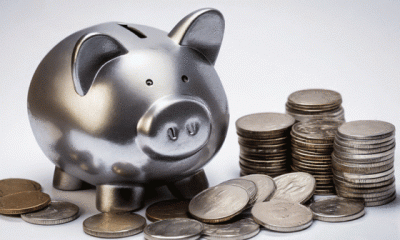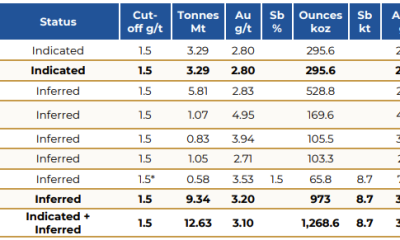- Written for beginners, Callahan’s book delves into the main ideas of the Austrian School of economics – a theory from the 19th century that talks about value being subjective and based on utility.
- The book is written without flowery jargon and in an extremely accessible tone, often invoking clever analogies to explain economic concepts.
- Callahan makes the world of money simple, showing how economics isn’t rooted in complex government policies or statistical models, but that it’s founded in human beings and the decisions they make.
- Although lighthearted at times, Economics for Real People is profoundly important and a necessary starting point to comprehend more nuanced monetary structures.
2. Currency Wars: The Making of the Next Global Crises, James Rickards
- Rickards’ book explores the process and influence of fiat currencies in the world. Despite being such a large topic, Rickards is able to discuss themes in a concise manner, addressing how the valuations of currencies impact the health of economies across the world.
- In particular, Rickards looks at how gold has played a big part in the history of money, and how the move away from the gold standard triggered currency wars that rendered money unstable.
- There’s equally a discussion about quantitative easing (a government policy to expand monetary activity) and its negative consequences in the long run.
- Perhaps most poignantly though, Rickards addresses how paper currencies lose their value and how financial crashes are inevitable within fiat currency systems, and how this is more than just a concern for economists and investors but for everyday people too.
3. What Has the Government Done to Our Money?, Murray N. Rothbard
- First published in 1962, What Has Government Done to Our Money? is still relevant today. The short book takes a look at the history of money, the definition of money, and the notions of ‘free’ and ‘unfree’, and how these are integrated into fiat currency systems.
- Like other books on this list, Rothbard asserts that gold is a more resilient and reliable form of money, and that it can be used to stabilize markets and economies.
- Specifically, he uses Europe’s precarious financial situation after World War I to highlight how government decisions can worsen scenarios while trying to improve them. As a result, we have a labyrinth economic model that could significantly benefit by returning to gold.
- In answer to the book’s title question, Rothbard argues that governments have (and continue to) inflate and and reduce the value of our money.
4. The New Case For Gold, James Rickards
- Our second selection from James Rickards, The New Case For Gold is an honest conversation about gold’s place in economic systems and the advantages it brings to everyday people.
- Rickards claims that gold never really left as a form of money, but that now is the time for a complete comeback to protect populations from reckless money printing by the Federal Reserve.
- Rickards articulates how gold can help preserve wealth for both banks and individuals, and draws from historical case studies, economic theory, and personal experience as an investor to argue that another financial collapse is pending, but gold can be a shield against it. Before reaching that point, Rickards offers expert advice around where to find, buy, and store gold.
5. The Crash Course: The Unsustainable Future of Our Economy, Energy, and Environment, Chris Martenson
- Chris Martenson looks at some harsh truths in a calm way in his book, paying attention to unsustainable economic, energy, and environmental trends, and the realities of where humans and the planet will be if we don’t make a change.
- Martenson focuses on how the existing monetary system places impossible demands on a finite world. Rising debt levels, over-consumption, and reactionary short-term measures will ultimately force financial systems to come to halt and reverse – the repercussions of which will be extremely damaging for all.
- The Crash Course uses impressive amounts of research to present ways for people to be financially resilient and responsible, and to mitigate the risks the financial system poses.
- It’s a heavy read but it’s necessary to understand how to make productive monetary changes for now and the future.
These picks are just a small sample of the vast reading material and online content that can help you master the world of money. Beyond being more confident in how you spend and save, these books can prompt you to reassess what form of money you use, and if it’s time to embrace better alternatives.










